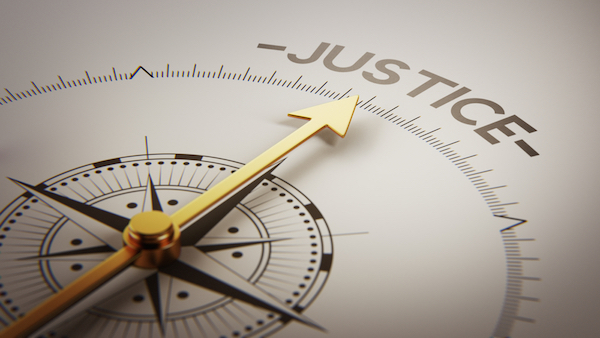NAIROBI,Kenya – Despite relentless efforts by international human rights organizations, local civil society groups, and dedicated legal actors, justice for survivors of sexual and gender-based violence (SGBV) during Kenya’s 2007 post-election violence remains heartbreakingly elusive.
A decade after the High Court’s judgment in Petition 122/2013, which ordered reparations for victims, the government has yet to fulfill its legal obligations.
This judgment, which was once heralded as a landmark victory for justice and accountability, now languishes among countless pending bills, with survivors left in limbo, their trauma compounded by systemic neglect. A critical solution question therefore emerges, should we just do the needful and move on from this?
Petition 122/2013 was a beacon of hope for many survivors of the 2007 post-election violence, a period marked by widespread human rights violations, including rape, forced circumcision, and other forms of sexual assault.
The case, brought by eight survivors under the aegis of the National Victims and Survivors Network (NVSN) and supported by numerous human rights organizations, sought to hold the state accountable for its failure to prevent, investigate, and prosecute these heinous crimes. In its ruling, the High Court found the government culpable and ordered it to compensate the survivors, an acknowledgment that they had long been denied.
Yet, ten years on, the reparations ordered by the court remain unpaid. The survivors, many of whom continue to live with physical and psychological scars, are left in a state of perpetual injustice. The government’s inaction sends a chilling message to survivors of SGBV and the broader public: justice in Kenya is a privilege, not a right.
The failure to enforce the judgment is not just a failure of the executive; it is a stark indictment of the entire justice system. Repeated attempts to engage the President of the Court of Appeal for a hearing date for the remaining victims have proven futile.
The silence from the judiciary is deafening, particularly in light of the Chief Justice’s public commitment to gender justice. While the Chief Justice has championed the establishment of specialized courts to address gender-based violence, her silence on this specific case reflects a troubling gap between rhetoric and action.
Critics argue that the judiciary’s inaction amounts to complicity in the denial of justice. This negligence undermines public confidence in a system that is supposed to uphold the rule of law and protect human rights.
If the courts themselves cannot ensure that their orders are respected, what hope is there for the countless victims who continue to wait for justice?
Adding to the quagmire is the transition within the Office of the Attorney General, the government’s principal legal advisor. With the recent changes in office, continuity has been disrupted, further delaying the enforcement of the judgment.
The Attorney General’s office, instead of actively pushing for compliance with the court’s ruling, has become an additional obstacle in the path to justice. This bureaucratic inertia is not just a failure of governance; it is a profound moral failing that denies survivors their dignity and rights.
This paralysis comes at a time when the government is under increased scrutiny for its human rights record. Kenya has long prided itself on being a beacon of democracy and rule of law in Africa.
Yet, the state’s failure to honor a court ruling undermines its international standing and exposes the hypocrisy of its commitments to human rights treaties and conventions. How can Kenya advocate for justice on the global stage when it fails to provide the same at home?
The survivors of the 2007 violence, and indeed all Kenyans, deserve more than empty promises and protracted delays. As a nation, we must demand accountability not only from the judiciary but also from the executive. This case is not just about reparations; it is about affirming the fundamental principles of justice, human rights, and the rule of law.
President William Ruto, who was himself implicated as an alleged inciter during the post-election violence and later saw his case dismissed by the ICC, must seize this moment to demonstrate true leadership.
By taking decisive action to ensure the full realization of the court’s judgment, President Ruto could help to heal the deep wounds of the past and set a powerful example for the continent. His involvement could be a critical turning point, showing that Kenya is committed to upholding justice, not just in words but in deeds.
The demand for justice is not a political statement; it is a fundamental human right. The victims of the 2007 post-election violence, many of whom have suffered in silence for over a decade, cannot be ignored any longer.
They are not just statistics or names on a piece of paper; they are mothers, daughters, fathers, and sons whose lives were forever altered by the violence they endured. Their courage to come forward and seek justice must be met with an equally courageous response from our leaders.
As citizens who lived through this dark chapter in our history, we have a collective responsibility to stand with the survivors and demand that the Kenyan government honors its obligations. We must remind the state of its duty to protect and provide redress to its citizens. Justice delayed is justice denied, and in this case, the denial has gone on for far too long.
We call upon the Chief Justice, the Attorney General, and the President to act swiftly and decisively to rectify this grave injustice. Let this case serve as a precedent that Kenya is serious about combating SGBV and committed to ensuring that every victim’s voice is heard, every right is respected, and every wound is healed.
The world is watching, and history will judge us by how we respond to this call for justice. It is time for Kenya to honor its commitment to its people and to the principles of justice it claims to uphold.
Jaika Charles is a programme consultant working at the Kenyan Section of the International Commission of Jurists (ICJ Kenya.) This article was first published on the People Daily.







